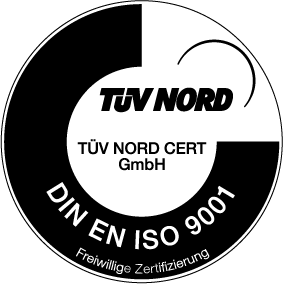Main content:
Opposition
Once an Austrian trademark has been published in the Austrian Trademark Gazette, the owner of a registered trademark or trademark application (which must mature to registration) with earlier priority has three months to oppose similar, newly registered trademarks that are likely to be confused with the earlier trademark, and to request that the registration in question is cancelled retroactively (Sections 29a–29c of the Austrian Trademark Protection Act [Markenschutzgesetz] (MSchG)).
Therefore, we recommend to seriously check the possible existence of conflicting or identical signs of third parties which are older in priority and, if necessary, contact the owners of conflicting earlier rights in order to conclude coexistence and delineation agreements. As the owner of a trademark, you should also consider using the services of trademark monitoring companies so that you can respond quickly – i.e. within the opposition period – to newly registered trademarks that infringe your trademark rights.
Where international registrations are concerned, the three-month opposition period is linked to the publication of the international trademark in the WIPO publication journal and begins on the first day of the month following the journal’s month of issue.
Once a trademark has been published, you can use your registration number to find it on the cover sheet of the Austrian Trademark Gazette, on see.ip or on the relevant WIPO page.
In opposition proceedings, the decision on any likelihood of confusion is not made by a senate comprising three members of the Austrian Patent Office, but rather by a legally qualified member of the responsible legal department. The proceedings contain elements that make the process faster than an appeal, although, unlike in appeal proceedings, the successful party is not reimbursed costs, i.e. the parties have to pay their own costs incurred in the proceedings and from any representation.
If an opposition is based on a trademark that has already been registered for more than five years when the contested trademark is published, it is essential to consider beforehand whether this trademark has actually been duly used in the course of trade and whether this can be proved. In opposition proceedings, the owner of the contested trademark can demand that credible evidence be presented showing that the opposing trademark has been used. If it is not possible to prove use, the opposition will be rejected. Vice versa, the owner of the contested mark should also independently gather information about use of the trademark cited in the opposition proceedings, and should not plead lack of use for generic reasons or without solid grounds. That would make the opposition proceedings longer and delay the decision on whether the contested trademark can continue to be registered in the future.
In addition to or instead of an opposition, or if the opposition deadline is missed, it is possible to send a cancellation request (Section 30 MSchG) to the Cancellation Department of the Austrian Patent Office (appeal proceedings).
Appeal
A trademark that has been granted can be declared invalid and removed from the trademark register if one or more of the cancellation reasons stated in the Austrian Trademark Protection Act (Sections 30–34, Section 66 MSchG) apply. Some of these cancellation reasons can be asserted by anyone at all (for example, if a trademark ought not to have been registered or has been registered for longer than five years without being used); others require the applicant to be qualified in a particular way (for example, the applicant must have an earlier, similar right that is likely to be confused).
A cancellation request must be sent to the Cancellation Department of the Austrian Patent Office and is subject to a handling fee. Decisions by the Cancellation Department can be contested by lodging an appeal at Vienna Higher Regional Court.
Trademark infringement
A trademark gives you a ‘right to exclude’, i.e. you can stop other parties from using an identical or similar mark for identical or similar goods or services if there is a risk of confusion in the course of trade. If you have a ‘well-known trademark’, your right to stop use of a trade mark might also extend to dissimilar goods or services.
If your trademark is infringed due to use of a contested mark on the market, you can initiate legal proceedings against this at Vienna Commercial Court (e.g. for cease and desist, removal, compensation or publication of the judgement). If your trademark is infringed by an earlier registered trademark, see the Appeal section.
Cancellation
A trademark will be cancelled if:
- the registration is revoked on the grounds of opposition (Sections 29a–29c MSchG)
- the trademark is declared invalid and is cancelled (Section 30 et seq., Section 66 MSchG)
- the renewal fee is not paid on time
- the trademark is surrendered.
Forms
Widerspruch Marke [Opposing trademark], docx, 56 KBWiderspruch Marke [Opposing trademark], pdf, 312 KB
Fortsetzungsblatt (mehrere Widerspruchsmarken) [Continuation sheet (multiple opposing trademarks)], doc, 100 KB
Fortsetzungsblatt (mehrere Widerspruchsmarken) [Continuation sheet (multiple opposing trademarks)], pdf, 90 KB
like & share
